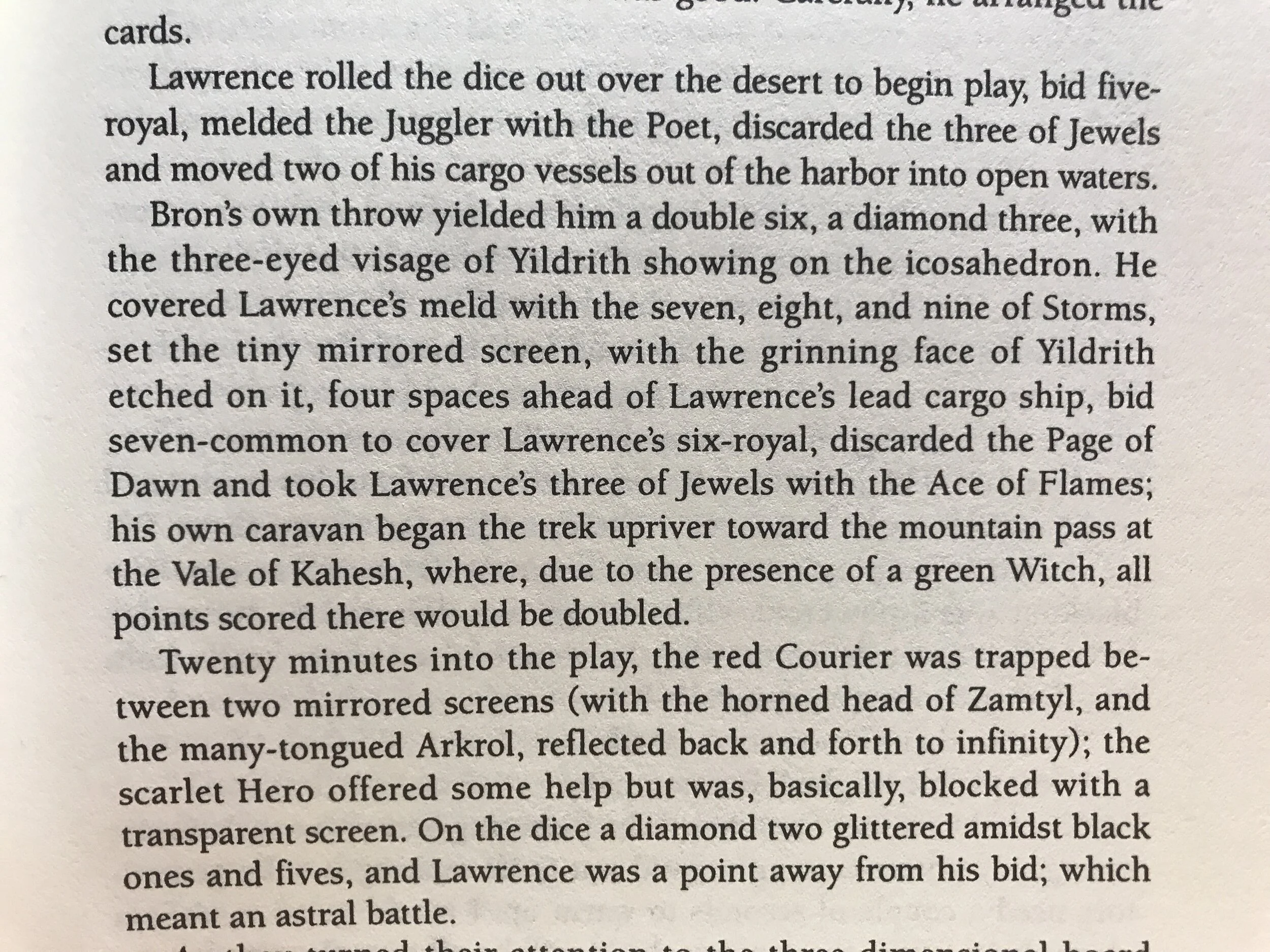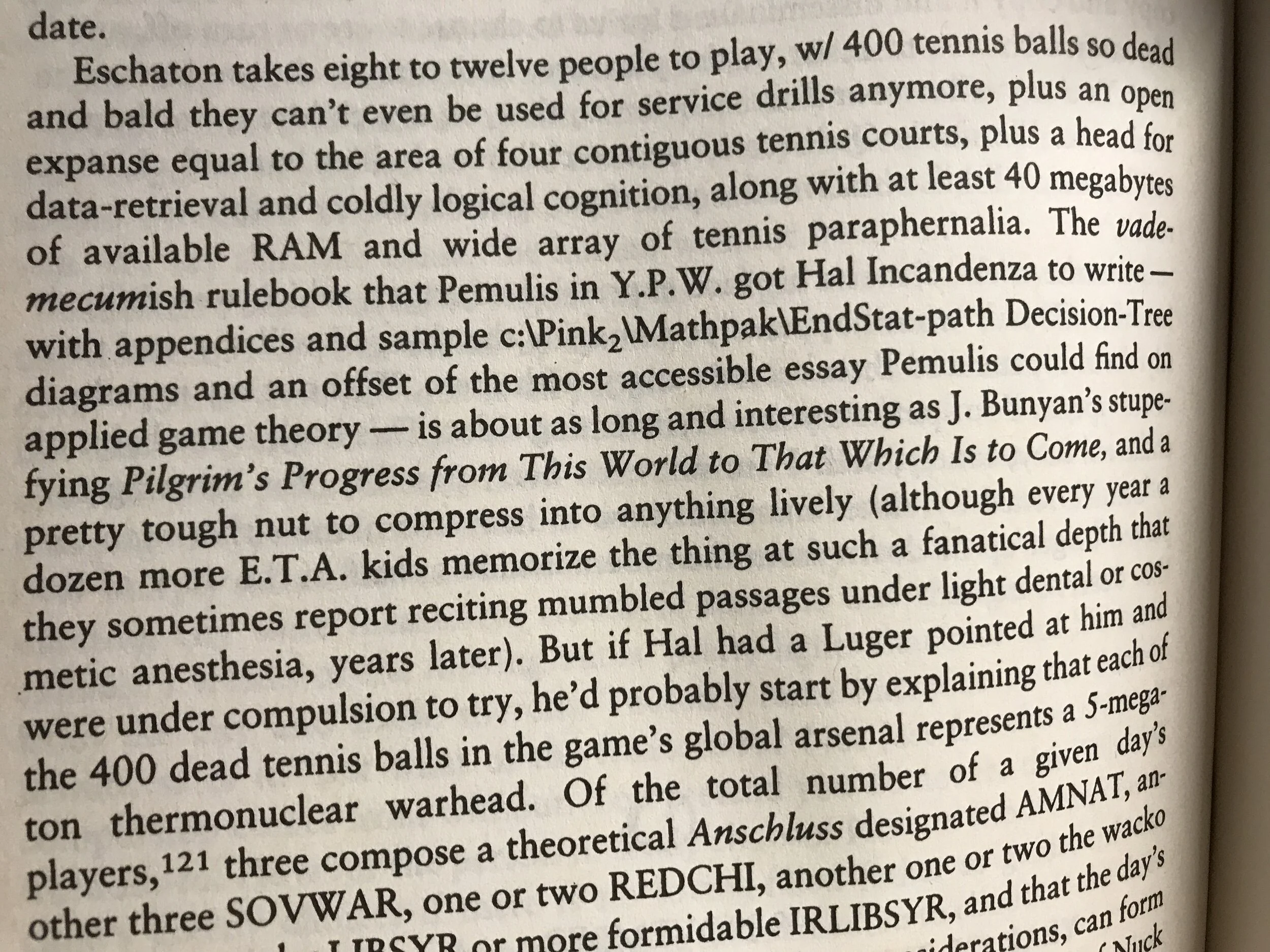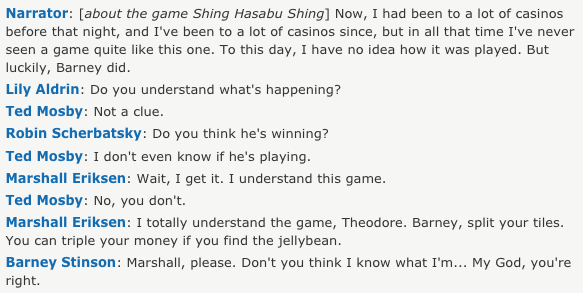Super-Complicated Games in Fiction
As a fan of both fiction and some fairly complicated games, I do enjoy depictions of super-complicated games in fiction. This isn’t quite a research interest of mine, but it relates a bit to my interest in representations of fictional computers, interfaces and software. In the cases of both these and of super-complicated games, a creator can spin out depictions of very elaborate rule-governed systems that, while straining audiences’ suspension of disbelief, still must be taken at face value as part of the fictional world. Unless given a reason to do otherwise, audiences accept as part of that world the descriptions of characters, environments, computers, and games.
In the case of super-complicated fictional games specifically, my enjoyment as a reader comes in part from my guess that the creators know the level of complexity pushes against the edges of what’s believable, but they also seem to know that they will never be held accountable for the games actually functioning.
I’m reading Trouble on Triton, by Samuel R. Delany, for the first time and got a kick out of this passage, describing the game vlet:
Samuel R. Delany, Trouble on Triton: An Ambiguous Heterotopia, 1st edition (Middletown, Conn. : Hanover: Wesleyan University Press, 1996), 322.
This reminded me of Eschaton, from David Foster Wallace’s Infinite Jest:
David Foster Wallace, Infinite Jest, Back Bay 10th anniversary pbk. ed (New York: Back Bay Books, 2006), 322.
Also notable, the “Atlantic City” episode of How I Met Your Mother.
Meria Ferrari (writer) and Pamela Fryman (director), “Atlantic City,” How I Met Your Mother (CBS, November 13, 2006).


